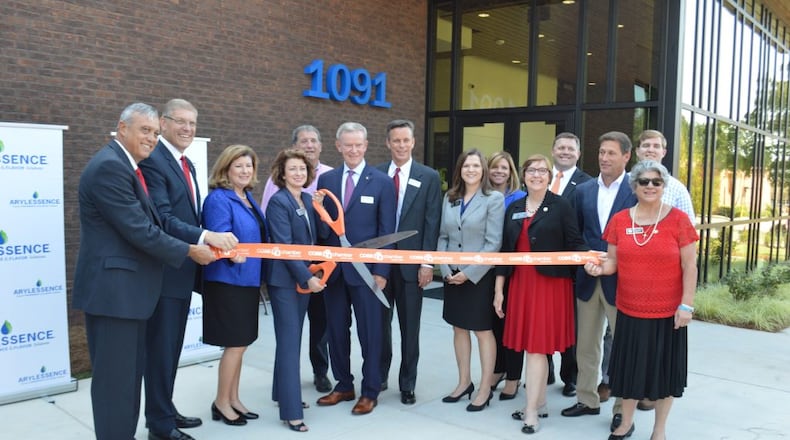A Cobb County perfume manufacturer is seeking $2 million in public assistance to subsidize a planned $27 million expansion of its facility on Lake Drive.
County commissioners last week agreed to waive $620,000 in building permit fees for the project, while the Development Authority of Cobb County is considering a 10-year property tax abatement worth $1.4 million.
Economic development officials for Cobb County and its development authority say the incentives will pay off in the long run, citing a fiscal impact study that found the benefits will outweigh the cost to the county government and the school system.
But an Atlanta Journal-Constitution review of project documents found that the study used to justify the incentives only takes some of the public subsidies into account — the property tax breaks. When the county fee waiver is added in, the project represents a net loss for the county coffers, with only the school system coming out ahead.
And, even though the company is requesting assistance through separate economic development entities, both say they evaluated their own incentives independently rather than discussing with one another whether both packages are warranted.
The company, Arylessence, plans to build a 54,000 square-foot facility at its headquarters in Northeast Cobb that would expand the company’s manufacturing capacity, add office space and create a receiving area for raw materials.
In documents filed with the Development Authority of Cobb County, company officials said the project would create 100 temporary jobs while the facility is under construction. Once completed, the company plans to hire 30 new employees at an average annual salary of over $75,000.
The study, completed by the Center for Economic Development Research, found that the project would have a net benefit of $711,076 over the 10-year term for the incentives. Of that, $281,424 would flow to the county government, with school district receiving the remaining $429,652.
But while the study weighs the cost of the $1.4 million property tax break and the additional demands for public services, it doesn’t factor in the $620,000 fee waiver approved by the Board of Commissioners, the AJC found.
Not only are the fees not mentioned, they’re worth more than all the county government costs listed in the study combined.
When asked about the separate subsidies, Cobb County officials told the AJC that they simply followed county code to determine if the company qualified for incentives.
“We do not take into account any abatements DACC may grant because that is not in our authority,” Jessica Guinn, Cobb’s director of community development, told the AJC in an email. “The code is very clear about what should be considered and how those qualifications are measured.”
The company qualified for the county’s targeted industry incentive program, because it would add at least 25 new jobs and the study showed a fiscal impact of more than $250,000. That study, however, does not account for both agencies offering incentives.
Nelson Geter, the executive director of the DACC, noted that the taxes and fees being waived wouldn’t have occurred without the construction project.
As part of the agreement, the company will make payments in lieu of taxes so that the county and the school district don’t lose any revenue they already receive today. The 10-year abatement would provide the company relief as taxes go up on the improvements made during construction.
“I look at incentives as an investment for future fees and revenue,” Geter said.
To take effect, the tax incentives still need final approval from the development authority board. In January, it voted 5-1 to formally consider the proposal, in which the DACC would issue a $27 million bond on the company’s behalf.
J.C. Bradbury, an economist at Kennesaw State University, voted no.
“I have a hard time understanding how granting incentives to an existing Cobb business promotes economic development,” Bradbury told the AJC. “...The argument normally is ‘oh these jobs wouldn’t be here unless we did this.’ I don’t think there’s much argument for that, given that they’re already here.”
Company officials in their application point to site terrain that would make construction difficult without the public assistance. In an interview with the AJC, Cynthia Reichard, the executive vice president of Arylessence, added that “financially, it was a stretch” to make the facility state-of-the-art, with energy-efficient equipment.
“The tax abatement really helped us to move our timeline forward,” she said. “It also enabled us to keep this build here in Cobb County.”
But would the company have left Cobb, its home for 45 years, without the public’s assistance?
“I don’t know,” Reichard said. “We would’ve had to talk about it. It would’ve been part of the consideration, so it was just very helpful. It encouraged us to keep it here and not have to go through that process.”
About the Author
The Latest
Featured


